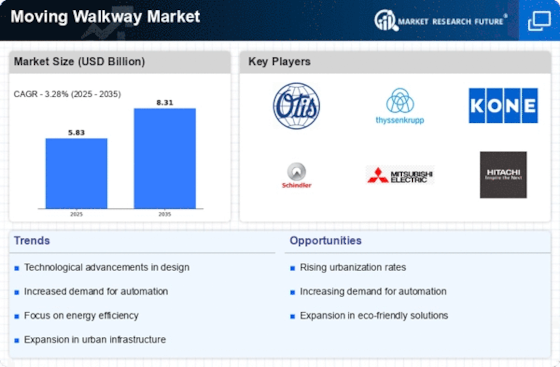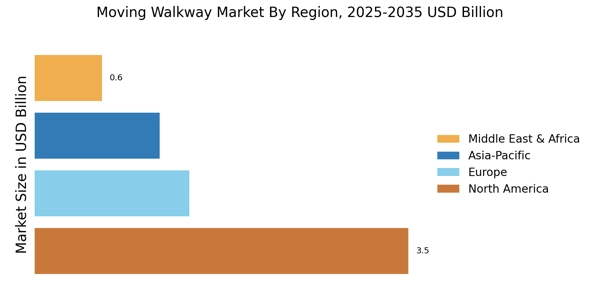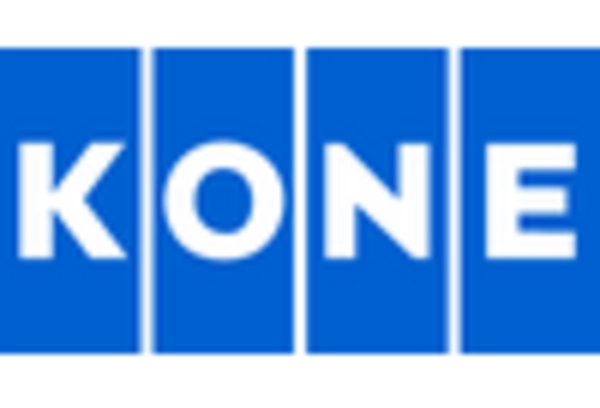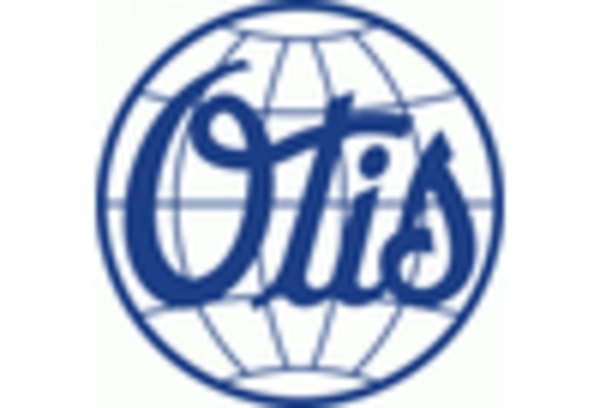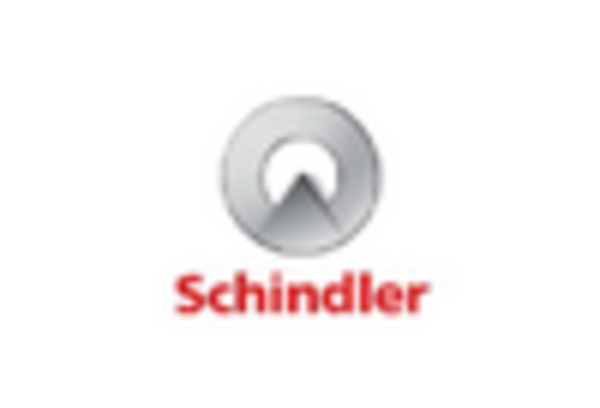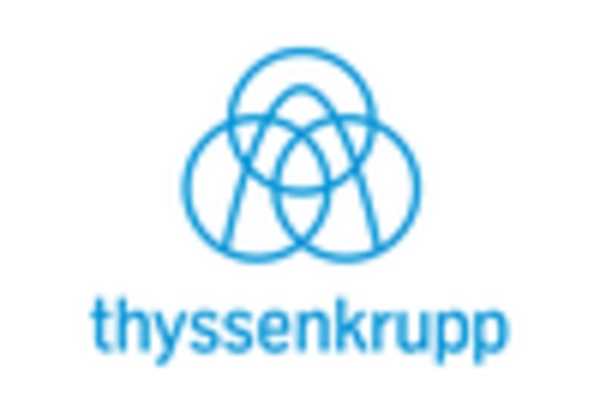Urbanization and Increased Foot Traffic
Urbanization remains a key factor influencing the Moving Walkway Market. As more people migrate to urban areas, the resulting increase in foot traffic necessitates innovative solutions to manage movement effectively. Moving walkways offer a practical response to this challenge, providing a means to alleviate congestion in busy public spaces. Data suggests that urban areas with high pedestrian volumes are more likely to adopt moving walkways as part of their infrastructure. This trend is expected to continue, with urban planners increasingly recognizing the value of moving walkways in enhancing mobility and improving the overall urban experience.
Expansion of Commercial and Retail Spaces
The expansion of commercial and retail spaces is a significant driver for the Moving Walkway Market. As shopping centers, airports, and entertainment venues continue to grow, the need for efficient movement within these large areas becomes critical. Moving walkways serve as an effective solution to transport visitors quickly and comfortably, thereby enhancing the overall customer experience. Market analysis indicates that the retail sector is expected to invest heavily in such infrastructure, with projections estimating a substantial increase in installations over the next few years. This trend reflects a broader shift towards creating more user-friendly environments in commercial spaces.
Technological Innovations in Moving Walkways
Technological advancements play a crucial role in shaping the Moving Walkway Market. Innovations such as smart sensors, energy-efficient motors, and automated control systems enhance the functionality and efficiency of moving walkways. These technologies not only improve user experience but also contribute to energy savings and reduced operational costs. For instance, the introduction of regenerative drives allows for energy recovery during operation, which is becoming increasingly important in a world focused on sustainability. The market is witnessing a shift towards more intelligent systems that can adapt to user flow and environmental conditions, indicating a promising future for technologically advanced moving walkways.
Growing Focus on Accessibility and Inclusivity
The Moving Walkway Market is significantly influenced by the growing emphasis on accessibility and inclusivity in public spaces. As societies become more aware of the needs of individuals with disabilities, the demand for moving walkways that cater to all users is on the rise. These installations not only facilitate easier movement for those with mobility challenges but also enhance the overall accessibility of public transport systems. Recent studies suggest that cities investing in inclusive infrastructure see increased foot traffic and user satisfaction. This trend is likely to drive further investments in moving walkways, as stakeholders recognize their importance in creating equitable urban environments.
Increased Demand for Efficient Transportation Solutions
The Moving Walkway Market experiences heightened demand for efficient transportation solutions, particularly in urban environments. As cities expand and populations grow, the need for effective transit options becomes paramount. Moving walkways provide a seamless means of transportation in high-traffic areas such as airports, shopping malls, and public transport stations. According to recent data, the market is projected to grow at a compound annual growth rate of approximately 5.2% over the next five years. This growth is driven by the increasing focus on reducing congestion and enhancing the overall travel experience. The integration of moving walkways into urban planning is likely to become a standard practice, further solidifying their role in modern infrastructure.


